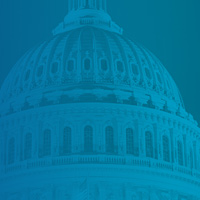A committee of experts selected and staffed by the National Academy of Sciences and National Academy of Public Administration will identify and assess a range of options for restoring America’s fiscal health. The committee’s work is supported by MacArthur.
The United States faces tough fiscal challenges in the decades ahead, as Social Security, Medicare, and other entitlement costs continue to rise rapidly while increased life expectancy results in a growing number of retirees relative to the number of workers to support them. In addition, federal budget rules and processes may make it difficult for citizens to understand the long-term impacts and hold elected officials accountable for their decisions. According to some projections, unless Congress and the President take action, federal spending on Social Security, Medicare, Medicaid, and interest on the federal debt may consume all federal revenues as early as 2030, while putting great pressure on all non-entitlement programs much sooner.
“Rapidly increasing annual deficits represent a major economic challenge to the country and may reduce future economic growth and restrict policy choices significantly,” said MacArthur President Jonathan Fanton. “The nation’s tough policy decisions ahead should be informed and shaped by solid evidence and objective analysis, which is what this committee will deliver.”
The committee, which held its first meeting in Washington, DC earlier this month, will produce several sets of baseline projections of the federal deficit and debt, as well as realistic policy scenarios for addressing the burgeoning federal deficit and debt in light of the values, preferences, and expectations of the American people. Policy scenarios, based on available research, will reflect the values and preferences of significant segments of the American population regarding the roles and responsibilities of individuals, employers, and government (federal, state and local).
There are many suggestions for how particular programs or areas of the budget might be altered and for how revenues might be increased to address the growing federal deficit, but there are few proposals that illustrate the implications of alternative solutions and trade-offs. What makes this committee’s work unique lies in its final product, which will lay out several different paths to fiscal sustainability, each grounded in different values and trade-offs.
The 23-member committee is chaired by Syracuse University Professor John Palmer, who recently completed two terms as a Presidentially appointed Public Trustee for the Social Security program, and Rudolph Penner, Senior Fellow at the Urban Institute, who was Director of the Congressional Budget Office from 1983 to 1987. A complete list of committee members is available online.



